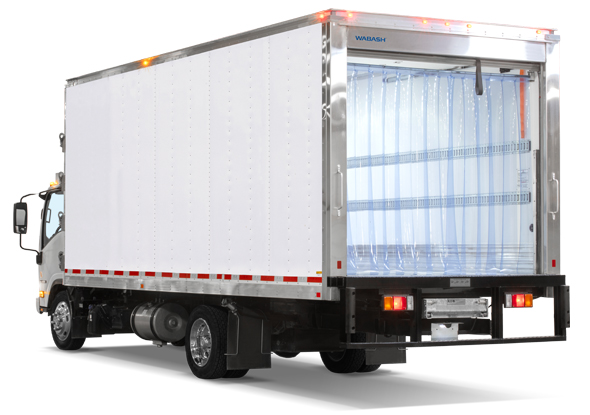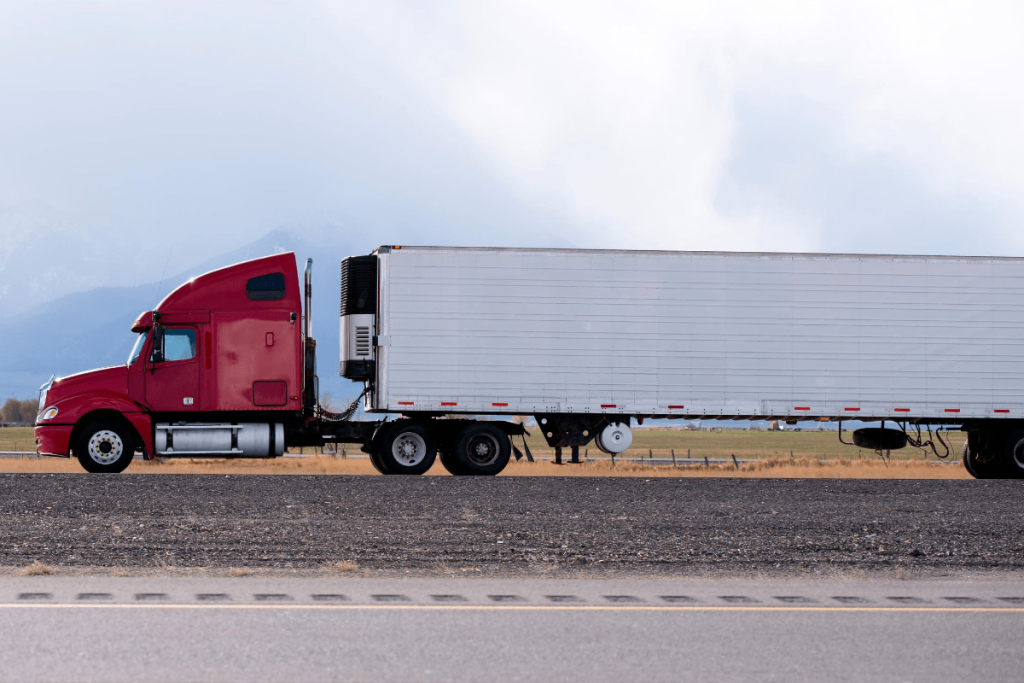Reefer Trucks Thermo King: Relied On for Temperature-Sensitive Product
Reefer Trucks Thermo King: Relied On for Temperature-Sensitive Product
Blog Article
Leading Innovations in Transportation Refrigeration: Enhancing Effectiveness and Safety And Security
The landscape of transportation refrigeration is going through significant transformation, driven by developments focused on boosting both effectiveness and safety. Trick developments such as smart temperature level monitoring systems, environment-friendly refrigerants, and automated route optimization are pivotal in resolving the sector's obstacles. These innovations not just make sure the integrity of temperature-sensitive items yet likewise add to sustainability efforts. As these technologies remain to evolve, it is important to explore their effects on functional practices and regulative compliance, motivating a more detailed exam of exactly how they reshape the future of transport refrigeration.
Smart Temperature Level Keeping An Eye On Solutions
In the world of transportation refrigeration, clever temperature level surveillance systems have actually emerged as a vital development for guaranteeing the honesty of temperature-sensitive products. These innovative systems leverage Web of Things (IoT) modern technology to provide real-time information on temperature level variations, allowing operators to preserve optimal problems throughout the supply chain. By continually tracking the temperature level of chilled containers and lorries, companies can swiftly identify variances that might jeopardize product top quality.

Additionally, clever tracking systems commonly integrate automated alerts and notifications, permitting stakeholders to react immediately to any potential issues. This positive approach not just lessens the threat of spoilage yet additionally improves compliance with regulative criteria controling food security and pharmaceutical transport.
The combination of data analytics within these systems also assists in predictive upkeep, helping drivers to visualize potential equipment failures prior to they occur. This ability lowers downtime and optimizes operational performance, inevitably resulting in set you back savings.
Eco-Friendly Refrigerants
Smart temperature tracking systems play an essential role in preserving item quality, however the performance of transportation refrigeration also hinges on the selection of cooling agents used. As ecological issues increase, the change in the direction of eco-friendly cooling agents has actually come to be essential. Conventional cooling agents, such as hydrofluorocarbons (HFCs), are infamous for their high International Warming Prospective (GWP), adding dramatically to climate modification. In contrast, arising alternatives like hydrocarbon-based cooling agents and hydrofluoroolefins (HFOs) present reduced GWP alternatives, providing both effectiveness and sustainability.
These green refrigerants not just lessen ecological effect yet additionally align with worldwide laws intended at terminating dangerous substances. Their adoption can result in boosted power effectiveness, ultimately lowering operating expense for transport refrigeration systems. Moreover, the use of natural cooling agents, such as ammonia and carbon dioxide, has actually obtained grip as a result of their exceptional thermodynamic residential properties and reduced environmental impact.
Buying eco-friendly refrigerants is not simply a governing conformity procedure; it represents a calculated choice that enhances brand credibility and promotes client commitment. thermo king truck refrigeration. By prioritizing sustainable methods, companies can add to a greener future while making sure the stability of transported goods
Advanced Insulation Materials
Using advanced insulation materials is vital for maximizing transport refrigeration systems, as they considerably improve power effectiveness and keep constant temperature control. Conventional insulation methods typically fall short in avoiding thermal transfer, leading to increased power usage and rising and fall temperature levels within chilled compartments.
Arising products such as vacuum cleaner shielded panels (VIPs) and aerogels provide remarkable thermal resistance, enabling thinner profiles without endangering efficiency. VIPs, for instance, use a vacuum layer to decrease conductive and convective warmth transfer, making them optimal for space-constrained applications. Aerogels, recognized for their light-weight and porous structure, supply remarkable insulation while dramatically minimizing total system weight.
Moreover, integrating phase adjustment materials (PCMs) into insulation systems can additionally maintain temperature levels throughout transportation. These products absorb and release thermal energy, efficiently buffering against external temperature level variations.
The integration of these advanced insulation materials not only minimizes the functional expenses connected with energy intake but additionally expands the service life of temperature-sensitive items. As the transportation refrigeration market remains to evolve, the adoption of ingenious insulation innovations will certainly be essential in improving both effectiveness and safety in cooled transportation.
Automated Course Optimization
The effectiveness of transport refrigeration systems is substantially improved through automated route optimization, which leverages real-time information and innovative algorithms to determine one of the most reliable paths for delivery. By evaluating various factors such as web traffic patterns, climate condition, and delivery windows, these systems can dramatically lower traveling time and gas consumption.
Automated route optimization decreases human mistake and subjective decision-making, which can bring about inefficiencies. This innovation enables fleet supervisors to assign sources more properly, making sure that cooled products preserve their called for temperature level throughout the trip. By maximizing paths, business can likewise improve client complete satisfaction through timely shipments.
Additionally, automated systems can adjust to unexpected conditions, such as roadway closures or unexpected web traffic spikes, enabling dynamic rerouting. This flexibility not just protects the stability of temperature-sensitive items yet also adds to general operational performance.
Implementing automated path optimization can lead to substantial expense financial savings while minimizing the carbon footprint connected with transport. As services increasingly prioritize sustainability, this technology sticks out as an important component in contemporary transport refrigeration, straightening operational objectives with environmental duty. Ultimately, automated course optimization stands for a substantial innovation in the quest for effectiveness and safety in transport refrigeration.

Real-Time Data Analytics
Automated path optimization dramatically take advantage of the assimilation of real-time information analytics, which offers important understandings right into the performance of transport refrigeration systems. By utilizing real-time data, transport operators can keep track of temperature variations and tools performance, making sure that disposable products are preserved within called for criteria throughout transit. This proactive technique not only improves the quality of the transported products but also mitigates the risk of spoilage and loss.

In addition to improving effectiveness, real-time analytics boosts safety and security by guaranteeing compliance with governing standards for temperature control. This not just safeguards public wellness but also fortifies a firm's credibility - thermo king truck refrigeration. As the transport refrigeration market evolves, the integration of real-time data analytics emerges as a keystone for driving advancement, sustainability, and functional excellence
Verdict
In verdict, the advancements in transport refrigeration significantly boost both performance and security within the industry. Collectively, these advancements represent an essential advancement in transportation refrigeration, ensuring conformity with regulatory standards and advertising a greener future.
The landscape of transportation refrigeration is undertaking considerable change, driven by technologies intended at boosting both efficiency and security.Smart temperature level monitoring systems play an essential role in preserving product quality, however the efficiency of transportation refrigeration likewise pivots on the choice of refrigerants made use of. Their fostering can lead to enhanced energy performance, inevitably minimizing operating costs for transportation refrigeration systems. Eventually, automated course optimization stands for a significant innovation in the mission for efficiency and safety in transportation refrigeration.
In conclusion, the improvements in transport refrigeration substantially enhance both effectiveness reefer trucks thermo king and safety within the industry.
Report this page